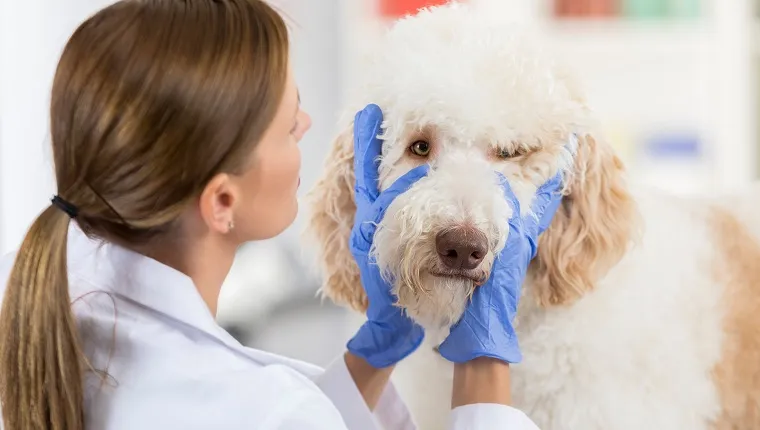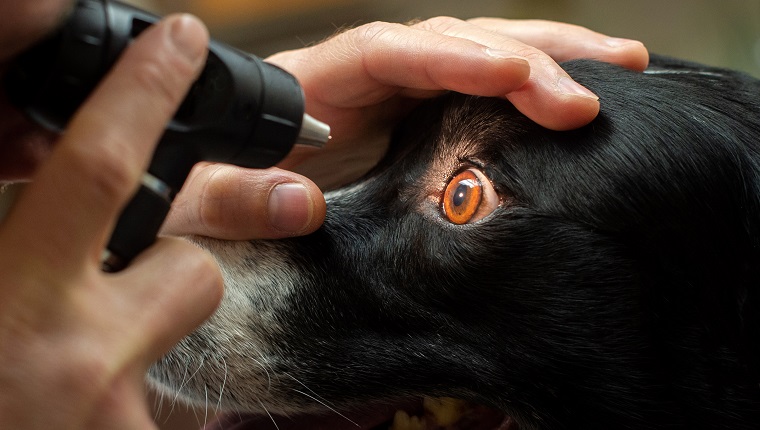Iris atrophy in dogs is a medical condition that sets in when the muscle of a dog’s iris begins to weaken and thin. It can bring about light sensitivity issues.
Normally, older dogs tend to develop this condition more than younger pups. Very small breeds of dog also oftentimes suffer from it more than larger canines.
If you see signs that your dog might be developing any eye issues, then you must consult your veterinarian for a proper diagnosis and advice. Here’s what you should know about the symptoms, causes, and treatments of iris atrophy in dogs.
Symptoms Of Iris Atrophy In Dogs
Iris atrophy in dogs is a condition that many times does not involve any obvious symptoms.
In cases where dogs do show symptoms, some of the most common include:
- Becoming sensitive to light
- Winking more than usual
- Starting to squint
Causes Of Iris Atrophy In Dogs

The precise cause of iris atrophy in dogs is currently unknown, but the condition does seem to affect older dogs the most. Additionally, smaller toy breeds of dog seem more likely to develop it than larger pups.
In some cases, an inflammation condition called uveitis has been identified as the cause.
Veterinary Treatments
If you suspect that your dog is developing iris atrophy, then your veterinarian will carry out a full eye examination. This process can involve shining a light into your dog’s eyes and monitoring how the iris reacts and what condition it is in.
If your dog has recently experienced a trauma, your vet might also want to conduct an X-ray to see if that incident may be causing any issues.
When it comes to treatment, many times no active measures need to be taken. The condition is seen as part of the aging process, so being aware that your dog may now be more sensitive to light is part of managing the condition.
In general, this is not considered to be a painful condition for a dog to experience.
In cases that result from underlying conditions, such as glaucoma or uveitis, your dog’s vet will take suitable steps to treat that specific issue.
Has your dog started to develop iris atrophy? Is it part of their aging process, or is there a condition causing it? Tell us all about it in the comments below.









